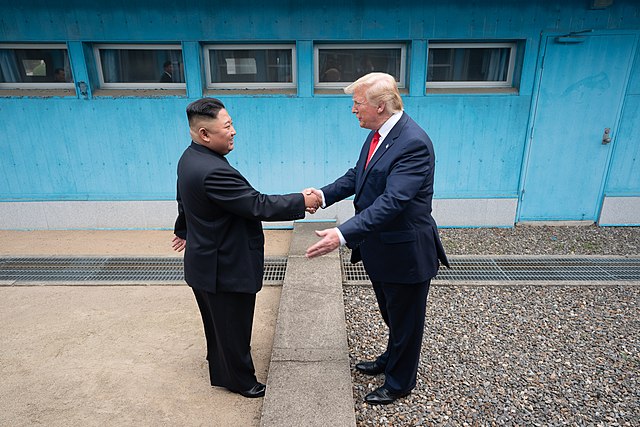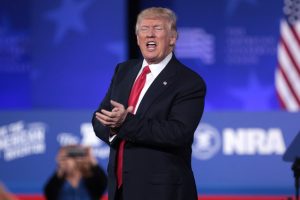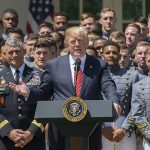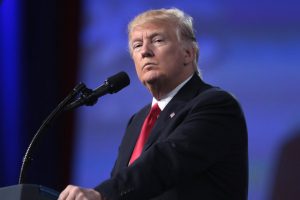by Daniel Wagner
The U.S. media has been busy over-analyzing and misinterpreting Trump’s 30-second foray into North Korea. The prevailing view has been that Trump gained nothing and Kim scored a huge public relations victory. This is short-sighted, for it fails to account for the potential long-term benefit to be gained by strengthening the personal relationship between the two men. It also fails to acknowledge that last weekend’s brief meeting succeeded in reviving bilateral negotiations.
Given the two false starts that have already occurred over the past 15 months, both leaders now seem to understand that a successful conclusion will require years of patient, deliberate negotiation. Kim no doubt understands that Trump is his best chance to achieve that objective. That being the case, he probably also realizes that he may not have much time left to do so, if Trump loses next year’s presidential election.
Some analysts have opined that Kim is merely stringing Trump along—taking as much as he can get in concessions and giving very little back in return. However, the notion that Kim might be persuaded to destroy his nuclear arsenal in its entirety had always been completely unrealistic. Kim had no incentive to make concessions on that basis. From his perspective, such a hard-line position was never going to be a serious point of embarkation. Trump realizes that now and may be more inclined to settle for a more realistic fallback position: a freeze in North Korea’s current nuclear arsenal. If the United States formally proposes a freeze Kim is likely to accept it.
One thing going for both Kim and Trump is that they have large egos. Both have staked so much on this process, and neither wants to walk away in failure. They both want to go down in history as the men who saved the world from nuclear catastrophe and did what no one else had, or could have, done. A next logical step would be to declare a formal end to the Korean War. This would serve as a confidence-building measure to set the stage for whatever comes next. Assuming that gradual progress is made in the negotiation process, the cessation of the annual military exercises between South Korea and the United States should be made permanent.
It would then be incumbent upon Kim to fully account for North Korea’s nuclear arsenal, biological weapon arsenal, and all short-, medium-, and long-range missiles. International inspectors must then be allowed to visually inspect and verify all such weapon inventories, and a plan to permanently monitor the weapons must be put into place. Kim will then want a non-intervention guarantee by the United States, South Korea, and other regional powers.
There is still every reason to believe that this process can ultimately be successful. Why else would Kim and Trump still be so interested in maintaining contact and continuing to build their relationship? Kim surely wants to join the family of nations, have sanctions fully removed, and start to build a successful economy. As hard as it may be for some people to believe, he also no doubt wants to provide a better life for his poverty-stricken people. That path cannot exist without a successful conclusion to the nuclear negotiations.
Kim and Trump deserve a lot of credit for dismissing the naysayers and proceeding apace. There have been, and will continue to be, obstacles of various levels of severity along the road. There may be some more name-calling and saber-rattling. Both leaders will continue to wave their respective flags in the process. But they both have their eyes firmly on the prize. Embracing the middle ground was always the only way this proposition had a reasonable chance of succeeding. Kim and Trump should be given credit for having the temerity to start down this path. If only the media and cynical foreign policy analysts would now get out of the way.
Daniel Wagner is CEO of Country Risk Solutions and author of the new book China Vision.






James Larrimore. It is highly risky to assume a prolonged bombardment of Iranian nuclear facilities will not solicit Iranian reactions. The fault lines that prevent US from attacking Iran now will still be there: strait of Hormuz, destruction of a good part of Northern Israel, attack on US forces in Iraq and elsewhere, destruction of some of the UAE and Saudi oil and desalinization facilities,and missile attack on US warships in the Gulf of Oman ( assuming that US navy tactically retreats during the assault) will be there as they are now. The calculus has not changed. There is a reason US and Israel have not attacked Iran thus far and the reasons will persist It is not Trump or Obama but the strategic interest of the US corporate world that determines US policy. It was a useful back in Obama days and now to threaten Iran with war. I hope Iran’s leaders are not fools although signing up to JCPOA does not give me confidence that they are not.
Dear rightofreturn,
We’re talking hypotheticals. Mine is this: If Iran were to make a real break toward a nuclear weapon, meaning ordering IAEA inspectors out of Iran and giving notice of withdrawing from NPT, that would justify for the American public war against Iran. Not just the President ordering to shoot some missiles and do some bombing; it would be real war. And Iran would likely respond with the actions you list.
But my assumption is that Iran’s leadership understands the US and they are smart enough NOT to take that path. My conclusion: Iran will not go down the DPRK route.
That, however, does not mean there will not be a war, because it is conceivable that the regime changers may convince the President a war, somewhere, would help his reelection chances, and that Iran would be his best choice. To repeat what I wrote the other day, from now on, for President Trump everything is all about the 2020 election.